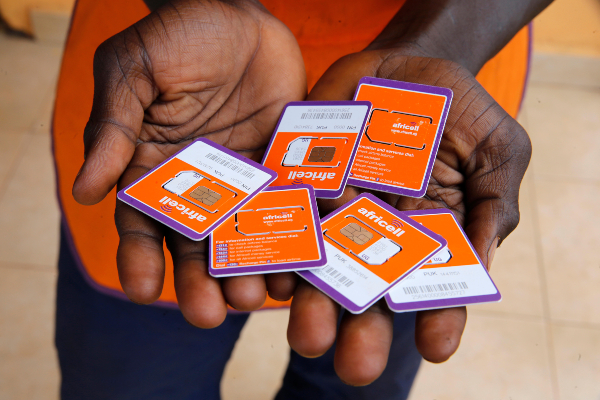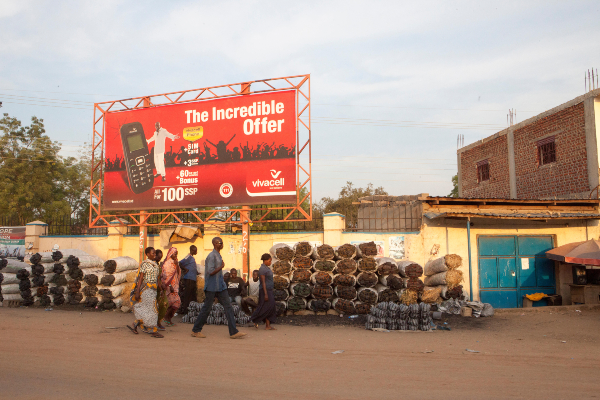
As 4G rollout ramps up, authorities across Africa are working together to tackle cybercrime. By Zachary Ochieng.
The growth in broadband connectivity has unlocked great potential in digital services, including mobile financial services and digital media. Global technology research powerhouse Ovum forecasts that there will be 32 million 4G LTE mobile subscriptions in Kenya, Tanzania and Uganda by 2022, while the number of people with access to smartphones in the region will rise to 108 million.
But the rise in mobile access has also led to a spike in cybercrime. Telecommunication companies and their regulators have borne the heaviest brunt of this menace, losing millions of dollars in revenue through the fraudulent use of SIM boxes.
SIM boxing, also known as ‘interconnect bypass fraud’, has become a major issue in Uganda in particular, where the government is losing millions in tax dollars to small-time criminals. They buy devices able to take several SIM cards and use these ‘SIM boxes’ to complete international calls at almost zero cost.
Charging just two cents per minute to route phone calls through their own internet servers, instead of through a licensed gateway owned by MTN Uganda or Airtel, the SIM box operators are able to massively undercut Uganda’s heavily taxed mobile operators, who charge about $19 per minute for calls abroad.
Neither the caller nor the receiver is aware the call has been routed through a SIM box instead of a licensed international gateway, except when a domestic number shows up or the quality is especially poor, with dropouts and echoes.
Because of its enormous profitability, SIM boxing, or so-called ‘grey traffic’, is very popular in Uganda, as well as in Kenya, Nigeria and many other African countries.

Above: Fraudsters use cheap SIM cards like to illegally route international calls.
According to Uganda Communications Commission (UCC), the country continues to lose high tax revenues to SIM-box fraud. It also causes traffic disruption on networks, and the quality of service suffers due to network congestion.
Wim Vanhelleputte, CEO of MTN Uganda, said local players have lost nearly $65 million in revenue tied to international calls, with the company witnessing increased calling volumes but reduced incomes from this segment.
Recently, the UCC, in collaboration with the local police, conducted an anti-telecom fraud operation that resulted in the seizure of more than 1,500 SIM cards and four SIM boxes.
SIM-box fraud is not just an issue in Uganda. In Ghana, the National Communications Authority (NCA), the Ghana Revenue Authority (GRA), KelniGVG, and the Ghana Police Service retrieved 11 SIM boxes, each capable of using 352 SIM cards simultaneously, from Tema, Ghana. The suspected criminals are alleged to have cost the telecom operators in Ghana and the regulator, the National Communications Authority, around $2 million per month in lost revenue.
‘There are international brokers of these fraudsters. They approach these international gateways and say, “I can help you terminate calls in, say, East Africa for half the price you actually pay right now”,’ explained Ibrahim Bbossa, UCC spokesperson.
‘The international gateway agrees and he channels his call traffic through a broker. These brokers then deliver it to customers.’
Analysts attribute the problem of grey traffic in Uganda to the huge gap between the national and international mobile tariffs, and dissimilarity of price policy of internet traffic and classic telephony. But generally in East Africa, the SIM-box fraud has been exacerbated by the One Network Area (ONA), an arrangement allowing cheaper calls between Uganda, Kenya, Rwanda and South Sudan.
Countries outside of ONA still have to pay high termination rates to call these countries.

Above: Charcoal traders beneath a mobile phone advert in Juba, South Sudan.
The disparate rates have caused fraudsters in countries outside the agreement to use so-called ‘interconnect bypass fraud’ to spoof the location of the call origin so that it appears within an ONA country.
According to the Rwanda Utility Regulatory Authority (Rura), Rwanda experiences less fraud than its neighbours because it has a fraud management system within its International Gateway Traffic Verification System, which could be adopted by the region.
‘We have had discussions aimed at the adoption of a similar system by all member states within the Northern Corridor and the harmonisation of our legal and regulatory frameworks to fight fraud,’ said Beata Mukangabo of Rura’s consumer protection unit.
Also stepping up anti-fraud efforts is Tanzania, who, together with the Global Voice Group (GVG), a leading technology and data solutions firm, implemented the Telecom Traffic Monitoring System.
This has enabled the Tanzania Communications Regulatory Authority to eliminate fraud and collect more than 93 billion shillings ($40 million) in additional revenue over the past five years.
According James Claude, CEO, Global Voice Group, data is now an essential aspect of everyday life. It can be used to assess the effectiveness of policies and strategies employed by governments and regulators. It can also assist them in spotting trends and patterns that would assist in resource management.
‘One example of this is the extra revenue generated by Tanzania since the implementation of a mobile money-monitoring system that allows the regulator to monitor transactions in real time,’ said Claude.
‘The effective collection and analysis of data can greatly assist data-driven decision making.’
He added: ‘New data feeds and technologies, such as Big Data and signalling analysis, should be focus areas of investment for operators as they move to the next level in fraud prevention.’



